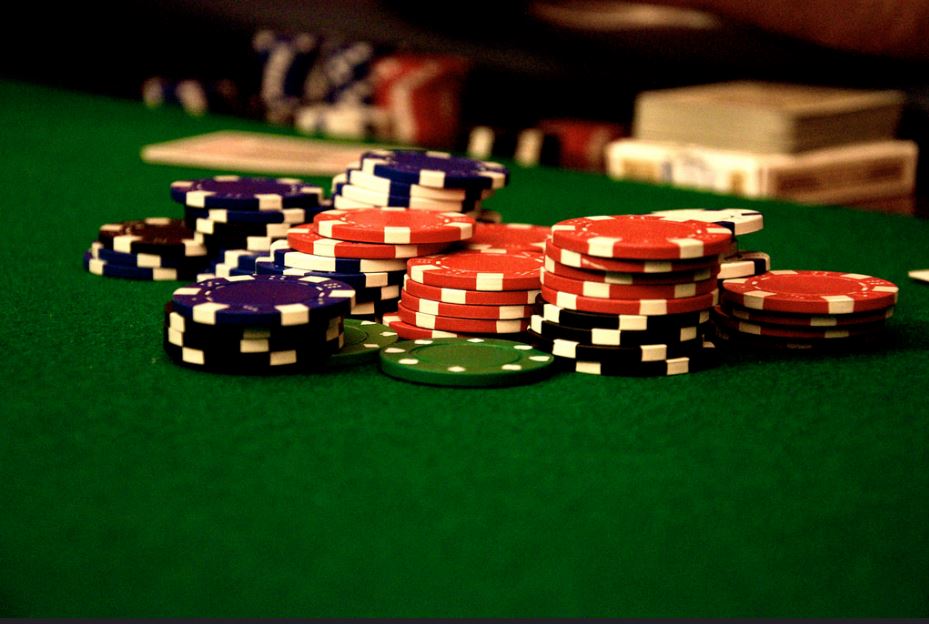Photo courtesy of Flickr
By Mats Johnson, CMO, VGW
Sure, a certain amount of luck goes into it, but poker is also a game of strategy, and to increase your chances for success, it’s important to educate yourself on all the finer points and nuances. Because this game moves at a quick pace, it’s easy to miss what the other players are doing, so you need to be alert, preemptive and tactical.
Train yourself to anticipate another person’s move, be smart with your own cards, and learn when to risk versus when to play it safe. If you’re looking to improve your poker game, these five pointers can help you take it to the next level.
Choose the Right Game for Your Skills.
This might sound obvious, but you need to be realistic about your own abilities before jumping into a poker game. As a general rule: the higher the stakes get, the more advanced and competitive the players become. It’s a smarter, more strategic move to be among the best contenders in a low-stakes game than struggling to keep pace in a high-stakes game. While there might be a greater chance for reward at one table, if the skill level is out of your range, there’s no shame in choosing a table where you are more likely to win.
Know Exactly When to Fold Your Hand.
It doesn’t take much foresight to fold a poor hand, but knowing when to fold what seems like a promising hand is another story. This might feel counterintuitive, but it’s actually a useful tactic for long-term success in the game. When deciding whether to fold on your next turn, take into account the danger signs from an opponent. If they’re raising your bets, calling out of position, and paying over the odds for a flush or straight draw, you need to factor in their show of confidence, add up your own chips and tabulate if the risk is worthwhile.
Learn to Read Your Opponents’ Tells.
Since poker is an interactive game, you can receive clues about the strength or weakness or your opponents’ hands by tuning into their poker tells. This might include body language, facial expressions or shifts in their pattern of betting. Sometimes a tell is unconscious, but depending on the other person’s skill, it can also be intentional to fake you out. Learning to observe how other people buy in, stack their chips, place bets, treat a hole card or react physically is a major asset in your arsenal. Here are common tells to be aware of:
Indications of a Strong Hand
Heavy, excited breathing
Forward, attentive posture
Wide, unblinking eyes
Impatient, ready for action
Relaxed, furtive smile
More protective of hand
Side glance at other players
Indications of a Weak Hand
Holding breath and not moving
Blank staring off into space
Tense smile or pursed lips
Closed, defensive posture
Excessive blinking or squinting
Careless treatment of cards
Biting nails or bottom lip
Question Each Play Before You Make It.
Critiquing the rationale behind each move you initiate will teach you to become a shrewd and methodical player. Before making a play, conduct a quick mental review and ask yourself these questions: “Why am I choosing this move? What do I have to lose or gain? How could my opponents react? Are they in a position to call or raise me?” Giving yourself time to analyze and consider the possible outcomes will decrease the urge to be impulsive and take unnecessary risks. This calculated approach also reduces the margin for error.
Continue Your Study Outside the Table.
There’s no better way to learn than to play the game as often as you can, but don’t confine your practice to just the poker table either. When you’re not playing, spend time immersing yourself in other study materials. Read books and manuals on poker strategy, watch training video tutorials, join the dialogue in online forums, subscribe to poker blogs and newsletters, or create a study group that meets on a regular basis to discuss what you’re each learning and to practice in an environment where the stakes are considerably lower.
Poker is a complex game of quick thinking, keen observing and shrewd reacting. At all times, you need to be mindful of your own strengths and weaknesses, while constantly assessing or anticipating those of the other players.
Knowing the basic rules of poker can get you started at a table, but honing your strategies, testing them out and learning new ways to improve is how you raise your game to the next level of competition.
Author Bio
Mats Johnson is an Executive Director and Chief Marketing Officer at VGW, the company that revolutionized the social gaming industry with their Chumba Casino and Global Poker brands. Over the past two decades, Johnson has held many senior positions in online gaming including General Manager at Centrebet, Director at Coral Eurobet, Chief Executive Officer at Playsafe and CMO at Expekt. When Johnson isn’t working he enjoys playing poker and skydiving.


